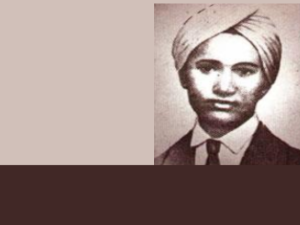Sikhs always pray for universal well being (sarbat da bhala) in our daily prayer; performed individually or in religious congregations. We consider all beings as the Creation of One God; hence all are brethren and equal in His eyes. God loves all the being equally and profoundly. The One who loves his being equally and without any ill will is loved most by Him. God knows the language of love and no other language. Anyone who just remembers Him ritualistically without any feeling of love for Him is doing a fruitless exercise. The one who loves His beings equally without any discrimination is most dear to Him.
Mutual love with sincerity and equality helps create a sense of belonging to the humanity and ultimately to the God. Gods is too benevolent; he gives to everyone as per one's requirement and is never tired of giving to others. The one who understands God's benevolent nature will always thank for His greatness and have humility, sympathy and tenderness. He will always be benevolent, merciful, sympathetic and virtuous at heart and in practice. He loves helping and serving others in times of need as his bounden duty. The Supreme Sikh scripture Sri Guru Granth Sahib has all these directions given by Sikh Gurus and saints recorded which provide continuous guidance to the all the true learners.

The true learner of a real Sikh thus belongs to the entire world. He loves the entire world and all His beings. He has no enemy and no one as alien since all are his brothers and equal to him; all are lovable equally. By learning these teachings of the Gurus; he enters into the service of the people remembering the Creator; the God (Sewa simaran). He always helps the needy. He earn honestly; shares his earnings with the needy and continuously remembers the Creator from thecore of his heart. He has been taught this practically by the Gurus. Guru Nanak, the first Guru of Sikhs is the beacon light. One such example is given here form the Janamsakhis; the record of the events of Guru Nanak's life. A group of holy persons came to Kartarpur and keenly watched Guru Nanak working in his fields. These holy persons considered Guru Nanak and the persons working with him animal like initially since they were all doing hard labour. However after seeing the commitment and dedication of the workers, they start appreciating their hard work. When they listened to the workers continuously reciting Lord's name while working they appreciated the workers to be holier than them. However when they saw these workers sharing their earning among all present including the holy persons; they were proclaimed as the images of God. This is a nice example of kirat karo, nam japo and vand chhako. This example not only creates an awaking and awareness towards the service to humanity and recitation of God's Name, but leaves a permanent imprint on one's mind as to what is the true path of a human being. The tradition of sangat and pangat; reciting God in unison in a congregation and having meals together at one place sitting in one line is reminiscent of this example and sets an example of true equality and fraternity among all beings.
A person who loves all the humanity equally can never be enemy of anyone. He will be doing good to even an evil doer taking it that the person is doing so because such task has been given to him by the God. Sri Guru Granth Sahib and the teaching of the Gurus are the real path which the entire humanity is supposed to adopt. Love everyone; hate none: serve all; conserve nothing since God goes on giving to everyone according to the need and his past performance. Since a true Sikh belongs to the entire world; considers all equal and all Creation of God; he prays for the well being of all (sarbat da bhala) in all his prayers. This has a message for the entire humanity. Ameen; may God make all His creation love the entire universe and do good to all without prejudice, preference or discrimination.






